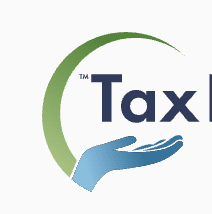Remote work has become a permanent fixture for millions of Americans, with over 22.5 million workers now operating from home offices. As employees invest in home workspaces—from ergonomic chairs to high-speed internet—the question is: Can you actually deduct these expenses from your taxes?
While most W-2 employees can’t claim federal tax deductions for home office expenses, self-employed workers and those in specific states may be able to recoup their work-from-home costs.
Navigating these tax rules requires careful attention to your employment status, state regulations, and specific expense categories.
» Confused by remote work tax rules? Check out our best tax relief services to maximize your savings.
Key Insights
- Self-employed workers can claim substantial deductions for home office spaces, equipment, and related expenses.
- Since the 2018 Tax Cuts and Jobs Act, W-2 employees generally can’t claim federal tax deductions for remote work expenses.
- Several states require employers to reimburse necessary work-from-home expenses.
- Proper documentation and understanding your employment status are critical for maximizing tax benefits.

Who Can Actually Claim Deductions?
Your employment classification determines which tax deductions you can claim as a remote worker.
W-2 Employees
The 2018 Tax Cuts and Jobs Act dramatically reshaped tax deductions for traditional employees. What does this mean for you?
Federal restrictions: W-2 employees can’t take federal tax deductions for home office expenses. The suspension of miscellaneous itemized deductions eliminated this opportunity until at least 2025, and it’s likely to be extended under Trump’s second term.
Out-of-pocket costs: Expenses like monitors, chairs, and office supplies are typically non-deductible for traditional employees. These costs must be absorbed personally unless your employer offers reimbursement.
Reimbursement alternative: Your best strategy is negotiating expense reimbursement with your employer. Many companies now offer stipends or direct reimbursement programs to support remote work setups.
Self-Employed Professionals
If you're a freelancer, independent contractor, or small business owner, you have significant tax advantages that W-2 employees don't enjoy.
Comprehensive deduction eligibility: Self-employed workers can deduct home office, equipment, software, supplies, internet services, business travel, meals, and more. These deductions directly reduce your taxable income and self-employment tax burden.
Higher equipment write-offs: Section 179 of the tax code allows deductions up to $1,050,000 for business equipment purchases. This provision enables immediate write-offs rather than multi-year depreciation for major investments.
Business percentage calculations: You can deduct the percentage used for business purposes for mixed-use items like internet service, cell phones, rent or mortgage, and utilities. Keeping detailed business records versus personal use strengthens your position during potential audits.
» Learn how to avoid common tax mistakes and boost your side hustle earnings.
Deductible Expenses for Remote Workers
Self-employed remote workers can deduct legitimate business expenses that are both ordinary and necessary. Understanding these categories helps supercharge your tax savings.
Technology investments: Computers, monitors, and peripherals used primarily for business purposes qualify as deductible expenses. The IRS allows deductions based on the business use percentage for each item.
Digital infrastructure: You can partially or fully deduct Internet services, cloud storage, and software subscriptions needed for your work. These ongoing expenses add up significantly over a tax year.
Office furniture and supplies: Office chairs, desks, and organizational systems can be deducted when purchased primarily for business use. Even smaller items like printer paper and pens count toward your total deductions.
Home Office Deduction Requirements
The home office deduction offers significant tax savings for self-employed individuals but comes with strict requirements.
Regular and exclusive use: The space must be used regularly and exclusively for business purposes. This means the area can’t serve double duty as a guest bedroom or family entertainment space.
Principal place of business: It must be your primary business location or regularly used for client meetings. The IRS may examine whether your home office is essential to your business operations.
Calculation options: The IRS offers two methods for calculating this deduction. The simplified method allows $5 per square foot (up to 300 square feet), while the regular method calculates the percentage of homes used for business and applies it to actual expenses. Generally, taxpayers should use whichever option lowers their taxes more.
State-Level Tax Considerations
While federal rules limit W-2 employee deductions, some states provide relief through mandatory reimbursement laws.
California: California leads with Labor Code Section 2802, which requires employers to reimburse employees for all necessary expenditures. This includes internet, phone, and equipment costs related to remote work.
Illinois: Illinois enacted the Employee Expense Reimbursement Act, mandating reimbursement for work-related internet, phone bills, and other necessary expenses. Employees must submit these expenses within 30 days of incurring them.
Emerging state trends: Massachusetts, New York, and Washington have introduced legislation or guidelines supporting remote worker reimbursements. These developments reflect the growing recognition of remote work as a permanent arrangement requiring financial support.
» See how your state's tax refund compares to others.
Documentation and Audit Protection
Protecting yourself during a potential IRS audit requires diligent record-keeping throughout each year.
Digital receipt management: Maintain detailed expense records with receipts and payment confirmations for all claimed deductions. Digital receipt apps make this process more manageable and provide secure backup options.
Usage documentation: Keep logs demonstrating business use percentages for shared resources like internet and phone service. These records establish the legitimate business purpose behind your deductions. This could be as simple as the following formula: (home office sq ft / total home sq ft) * total annual internet cost = deductible internet expense.
Visual evidence: Take dated photos of your home office setup to verify exclusive business use. These images are powerful evidence should the IRS question your home office deduction claims.
Tax Planning Strategies
Strategic planning throughout the year improves your tax position and prevents last-minute scrambling during tax season.
Consistent tracking systems: Use dedicated accounting software or expense apps to capture and categorize all potential deductions throughout the year. Real-time tracking prevents overlooked deductions at tax time.
Strategic purchase timing: Consider making large equipment or software purchases before year-end to amplify current-year deductions. This timing strategy can significantly reduce your tax liability in high-income years.
Entity structure evaluation: Explore whether operating as an LLC, S-Corporation, or other business entity might offer additional tax advantages for your remote work situation. Different structures provide varying benefits depending on your income level and business complexity.
» Here's how you can structure your finances to pay less taxes + expert tips.
Conclusion
While W-2 employees face limitations on federal tax deductions, self-employed remote workers can significantly reduce their tax burden through documentation and strategic planning.
Understanding your employment status, state-specific regulations, and eligible expense categories can help maximize available tax benefits while maintaining compliance.
As remote work evolves, tax regulations will likely adapt. Staying informed about changing rules and consulting with tax professionals ensures you capture all legitimate deductions while avoiding costly tax errors.
» Check out our recommended tax relief services to develop a customized tax strategy.
David Kindness is a finance, insurance and tax expert at BestMoney.com. He has written for Investopedia, The Balance, and Techopedia, sharing his deep expertise in taxation, accounting, and finance. A CPA with a Bachelor’s in Accounting, David has worked as a tax specialist and Senior Accountant for high-net-worth clients and businesses in the San Diego area.



